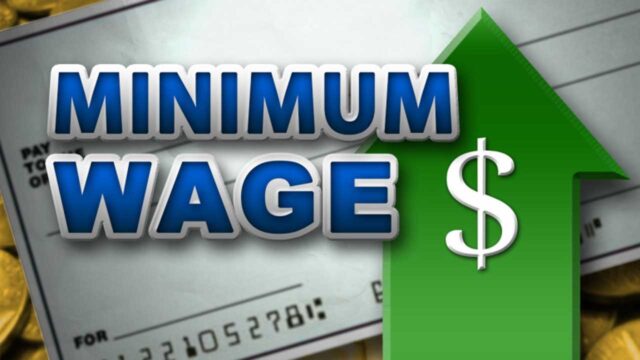The amount budgeted for personnel costs, including salaries and allowances to state civil servants, has increased from N2.036tn spent in 2024 to N3.87tn in the approved 2025 budget.
Although the 36 sub-national allocated a total sum of N2.8tn as salaries costs, it only paid out a total of N2.036tn within the 12 months of 2024, a reduction of N764bn, according to its budget implementation report.
According to data obtained from the 2025 approved budget of the 36 state governments, the increase occasioned by the implementation of the newly approved N70,000 minimum wage and spiralling political appointments reflects an increase of nearly 90.23 per cent.
The approved budgets are also contained in Open States, a BudgIT-backed website that serves as a repository of government budget data.
The budget report also indicated that at least 27 states of the federation would not be able to pay workers’ salaries this year without having to wait for federal allocations from the central government.
In July 2024, President Bola Tinubu officially approved a significant increase in the minimum wage for Nigerian workers, raising it from N30,000 to N70,000.
This decision came after several months of rigorous discussions and negotiations between the government and labour unions.
However, the implementation of this wage increase has been gradual across the country, with some states still yet to adopt the new minimum wage.
In response to this delay, the Nigerian Labour Congress issued a stern ultimatum to state governments, demanding that they fully implement the new wage structure by December 1, 2024.
Despite this pressure, several states have yet to initiate the payment of the revised minimum wage, further prolonging the financial relief workers were expecting.
An in-depth analysis of the budget document revealed significant variations in personnel costs across states: 20 states saw an increase in personnel expenses exceeding 50 per cent, while 16 states experienced a more modest rise, with salary increases remaining below the 50 per cent threshold.
A further breakdown showed that Abia, Cross Rivers, Ekiti, Niger, Rivers, and Taraba states got the highest increase in its payroll, exceeding 100 per cent of its 2024 personnel cost budget. While Gombe, Osun and Ondo got the lowest salary increase percentage, scoring below 15 per cent.
In a detailed examination of the salary increases across each state, Abia approved a notable increase in its personnel costs, with an escalation from N33.045bn to N77.34bn, representing a 134 per cent increase. Similarly, Adamawa’s personnel cost rose from N48.61bn to N74.23bn, marking a 52.7 per cent increase.
In Akwa Ibom, a sharp surge from N91.74bn to N126.69bn was approved, representing an impressive 38.1 per cent growth.
Anambra state, under Governor Charles Soludo, also approved a significant rise from N34.001bn to N63.41bn, indicating an 86.45 per cent increase.
Bauchi followed suit with an increase from N42.29bn to N70.41bn, showcasing an uplift of approximately 66.5 per cent.
Meanwhile, Bayelsa saw its personnel costs climb from N60.18bn to N114.21bn, a rise of over 89 per cent, signalling an emphasis on investing in its workforce.
In Cross River, the personnel cost grew sharply from N35.02bn to N106.12bn, reflecting a 202 per cent increase, one of the highest among the states. Delta also recorded a notable surge in its expenditure from N139.999bn to N185bn, signalling a growth of about 32.5 per cent.
Ebonyi followed with an increase from N23.076bn to N36.66bn, growing by 58.9 per cent.
Edo with its leap from N74.58bn to N101.29bn, reflected a 35.8 per cent increase, while Ekiti registered a substantial rise from N30.69bn to N62.51bn, almost doubling its personnel cost.
Enugu also saw a substantial rise from N47.988bn to N70.954bn, an increase of 48 per cent.
However, Gombe stood out with a negligible decrease in personnel costs, falling from N40.52bn to N40.28bn, a small dip of just 0.6 per cent.
On the other hand, Imo saw an increase from N41.92bn to N67.4bn, showing an upward trend of 60.9 per cent.
Jigawa experienced a jump from N51.445bn to N90.73bn, an increase of 76.4 per cent, while Kaduna’s personnel costs grew by 23.4 per cent from N68.010bn to N83.94bn.
Kano, one of the largest increases in this analysis, saw its personnel costs skyrocket from N89.97bn to a staggering N150.996bn, an impressive 67.8 per cent rise.
Katsina, which saw an increase from N29.69bn to N58.62bn, experienced a growth rate of 97.6 per cent. In Kogi, the personnel budget grew from N64.798bn to N109.96bn, an increase of 69.8 per cent.
Kwara followed a similar trend, rising from N51.045bn to N69.152bn, a growth of 35.5 per cent.
The largest increase came from Lagos, which saw its personnel costs more than double, from N225.114bn to N401.12bn.
In Nasarawa, personnel costs increased from N48.704bn to N80.456bn, a 65.2 per cent rise, while Niger recorded an even larger leap, from N25.36bn to N104.301bn, reflecting a growth of 311.5 per cent. Ondo saw an increase from N75.96bn to N139.726bn, an uplift of 83.9 per cent, while Osun also registered a significant rise from N55.571bn to N102.89bn, an 85.1 per cent increase.
Oyo experienced a massive increase, with personnel costs rising from N116.207 bn to N214.116bn, an 84.3 per cent increase.
Similarly, Plateau saw its personnel expenditure climb from N38.963bn to N67.144bn, marking a 72.5 per cent increase.
Rivers State, under Governor Siminalayi Fubara, recorded a staggering rise from N167.05bn to N343.196bn, a 105.6 per cent increase.
Sokoto also saw a substantial increase, from N55.32bn to N64.711bn, a 17 per cent rise.
Taraba experienced a significant increase from N36.319bn to N95.23bn, a 162 per cent rise, while Yobe recorded a 34 per cent increase, growing from N47.95bn to N64.12bn.
Zamfara saw a moderate increase, with personnel costs rising from N34.21bn to N58.38bn, a growth of 70.7 per cent.
Meanwhile, the substantial increase in salaries and allowances across various states has introduced a new set of challenges.
With the sharp rise in personnel costs, at least 27 states of the federation now face the stark reality that they will be unable to meet their payroll obligations without relying heavily on federal allocations from the central government.
This means only 9 out of the 36 state governments of the federation can independently pay their workers’ salaries without depending on federal allocations.
This is an increase from 24 states that couldn’t pay salaries without federal allocation in 2024, according to an analysis of the state governments’ approved budgets for the 2024 fiscal year.
The states with robust internal revenue are Lagos, Abia, Benue, Enugu, Ogun, Niger Kaduna, Kwara, and Osun.
According to the analysis of the budget data, 27 states cannot fund salary payments from their internally generated Revenue and, as such, may have to rely on Federal Government allocations or borrowing from banks and related institutions.
The development also means that the respective wage bills of the affected states surpassed their various IGRs, raising concerns about workers’ productivity and state governments’ efficiency in internal revenue generation.
Speaking with The PUNCH, the economist noted that the latest data further stress the need to reduce the cost of governance across the country.
Commenting, the director and CEO of the Centre for the Promotion of Private Enterprise, Muda Yusuf, noted that there are several arguments for the state’s low revenue generation and its bloated civil service workforce.
He said, “The IGR thing, first of all, we need to recognize that there are big disparities in the natural endowment of the states. Not all states are equally endowed. You know, you can’t compare a state that is a coastal state like Lagos or Delta where you have a lot of oil companies, and they pay taxes through P.A.Y.E.
“If you take a state like Jigawa or a state like Gombe or a state like Kogi, most of the businesses there are SMEs. Most of them are agricultural businesses because most of them are farmers. How much IGR can you get from these people? So what you discover invariably is that the IGR that they get in those states are only from the salaries of the workers.
“The second argument is that many of them have the bloated workforce, which they don’t need. If you go to some ministries, many of them are carrying ghost workers. Some of them don’t even show up in their offices.
“Some of them can run all these ministries with half of the government’s workforce. But because of political and other considerations, they have too many workforces that they don’t need.”.
A professor of economics at Babcock University, Segun Ajibola, said, “The states must do all they can to raise internally generated revenue without putting undue pressure on their citizens. Secondly, they must reduce the cost of governance, block wastages, do proper streamlining of ministries, departments, and agencies,numberrofligacy, and ensure accountability and transparency in government.
A former chief economist at Zenith Bank, Marcel Okeke, pointed out that the increase in the ministries and governance at the centre would trickle down to the subnationals and impact their wage bill.
“Most of the things these governors do are done out of political considerations and not economic ones, from the location of companies to the appointments of aides; special advisers, senior special advisers, and so on. There are notorious cases of governors appointing hundreds or thousands of assistants. What are those people doing, and are they paid money? Can they not do with a fewer number of them?
“Do you know we have bloated staff? In some ministries, that should only have about 100, they have 400 to 500, so a job that should be done by one person, you haveeee about five persons hanging around. What some people do is to carry files and they have no job. When these states do staff audits, they report ghost workers. If they look into this area, they can reduce cost,” he said.
Also, the Executive Director of the Rule of Law and Accountability Advocacy Centre, Okechukwu Nwagunma, lambasted Nigerian government officials for their lack of vision, sincerity, and patriotism.
Nwagunma pointed out that despite promises from the president to cut the cost of governance by reducing the number of appointees and ministries, the reality is the opposite—new ministries are being created, and a record number of appointees are being appointed.
He said, “The government at all levels in Nigeria is composed mainly of people who are visionless, insincere, unpatriotic, selfish, and insensitive to the suffering of the people they claim to serve.
“They do the opposite of everything they claim they will do. The president talked about reducing the cost of governance by pruning down the number of government appointees and ministries. But the president is busy creating new ministries and appointing the highest ever number of appointees, both as ministers and aides.
“The same thing is happening at the state levels. State governors appoint needless numbers of aides with almost every other aid having their aides. While the state of the economy continues to worsen, with government policies unable to alleviate the suffering of the majority of Nigerians who continue to groan in deprivation, poverty, and hunger, the same government officials continue to live in obscene and provocative opulence and extravagant lifestyles. And they ask Nigerians to be patient and to continue to make sacrifices.”







